
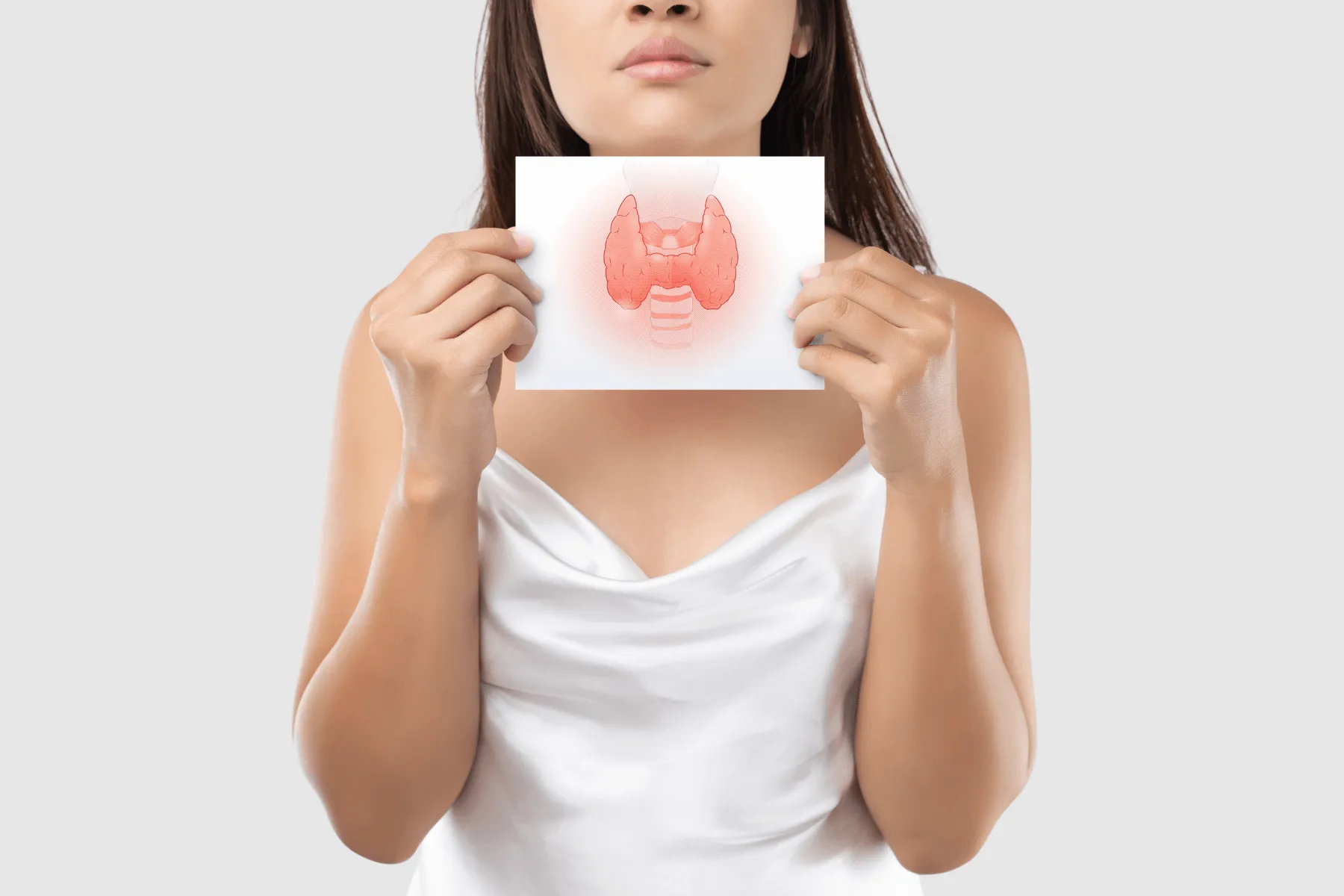
Thyroid disorders are common for people around the world. Fortunately, there are yoga asanas and pranayama that are beneficial for those with thyroid disorders to relieve the symptoms. In fact, a clinical trial found that women with hypothyroid disorders saw the quality of life scores improve after just 30 days of yoga, indicating that yoga may be considered as supportive or complementary therapy in conjunction with medical therapy for the treatment of a hypothyroid disorder.
While yoga won't cure thyroid disorders completely, it provides several benefits to overall health and well-being. Yoga can help you increase flexibility and mobility, relieve stress, and balance your energy.
In this article, I'm going to share several asanas and pranayama that can help alleviate the symptoms of thyroid disorders. To enjoy the full experience and get feedback on your form, I invite you to sign up for a free two-week trial of myYogaTeacher. You'll not only get access to my Therapeutic Yoga for Thyroid class but more than 35 other live, online yoga classes every single day.
[CTA-DEFAULT]
The thyroid is a small, butterfly-shaped gland at the base of the front of the neck, just below the Adam's apple. It produces two hormones—triiodothyronine (T3) and thyroxine (T4)—that have a huge impact on your metabolism and health. These hormones help your body regulate heart rate and body temperature, among other functions.
Anybody can develop hypothyroidism, but you're at increased risk of hypothyroidism if you:
Asanas and pranayama can help maintain proper thyroid function, minimizing symptoms and preventing additional issues. Different asanas work for different needs. Some asanas improve circulation, others nourish the thyroid. Pranayama helps regulate hormones and prana in the body.
Let's explore a few asanas and a breathing exercise that will help reduce the symptoms of your thyroid disorder. The asanas here are perfect for those with hypothyroid disorders. If you suffer from hyperthyroidism, you should avoid neck-stretching and thyroid-stimulating asanas.
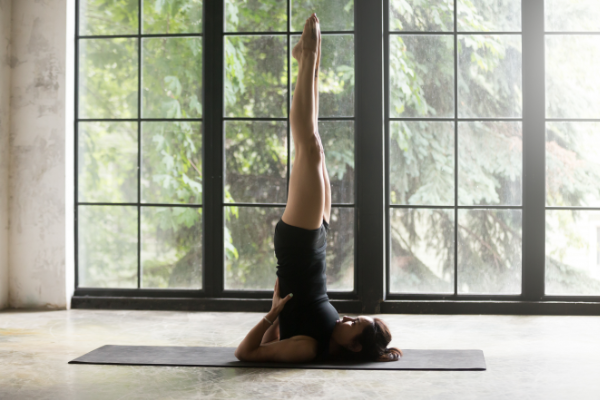
Supported shoulderstand is an inversion that stimulates blood flow to the glands in the upper body—including the thyroid gland. Additionally, the chin lock position (chin tucked into the chest) is understood to improve thyroid function.
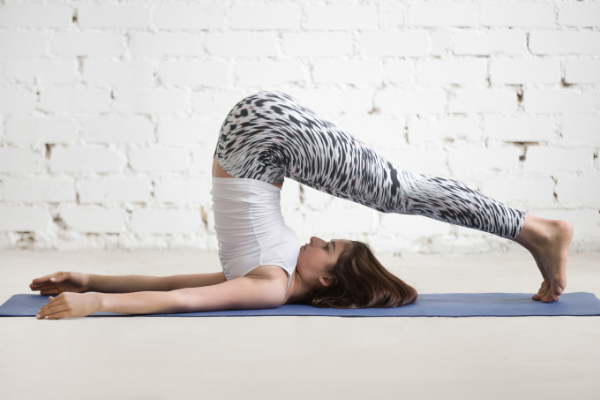
Similar to shoulderstand, plow pose increases blood flow to the glands in the upper body and stimulates the thyroid gland. Some practitioners may find this pose easier to do than a shoulderstand.
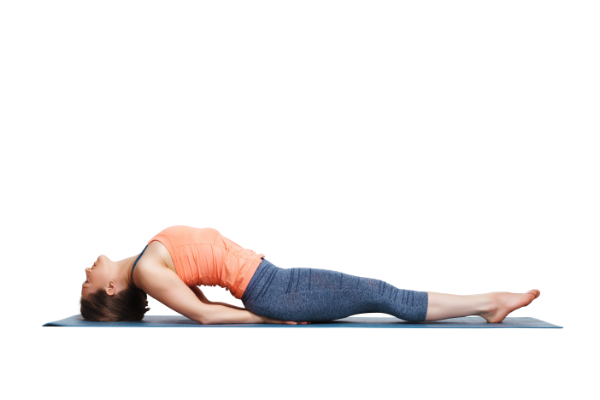
Fish pose is an excellent counterpose to shoulderstand or plow pose. It's a much easier pose to do and will be accessible to most practitioners.
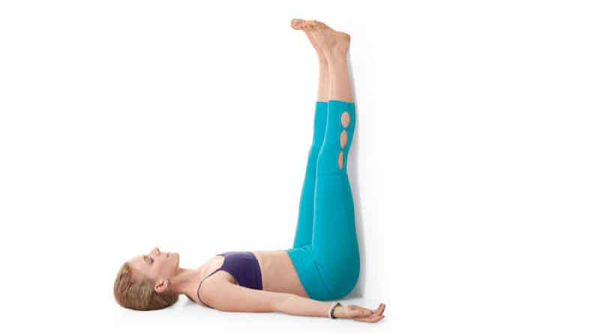
Legs up the wall pose is an inversion often seen in restorative yoga. Unlike shoulderstand, plow, and fish pose, this pose doesn't put stress or pressure on the neck. It's a wonderful passive pose you can use to restore balance.
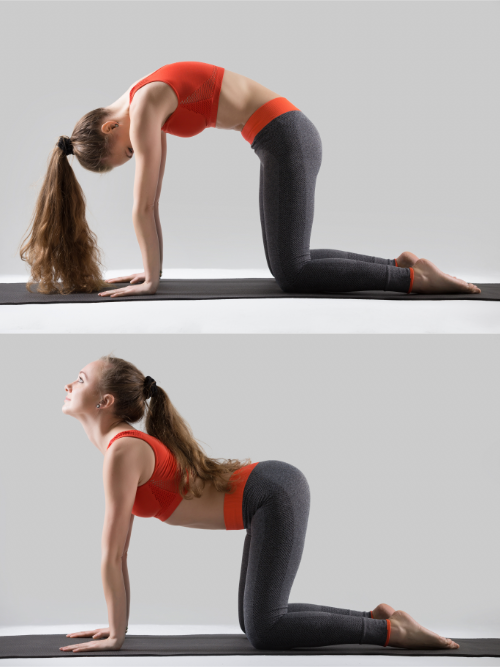
With the repetitive chin lock to neck stretching movement, cat-cow is a way to stimulate your thyroid and increase blood flow to your neck and thyroid.
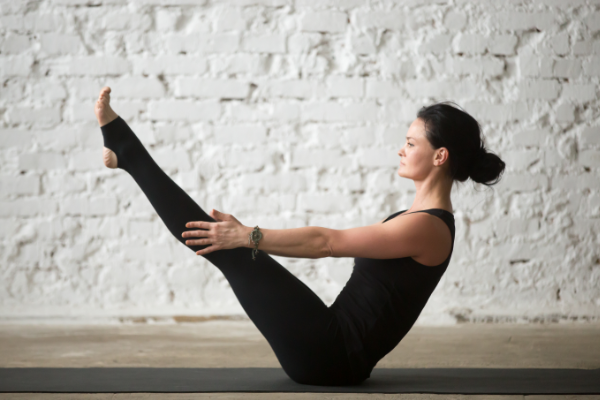
Boat pose isn't only great for core strength, but the position of your neck in this pose can also have a positive impact on thyroid function.
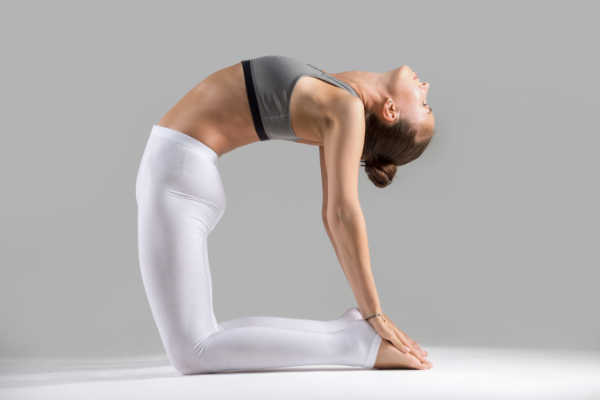
Camel pose includes a pretty intense neck extension. This increases circulation to the front of the neck and stimulates the thyroid gland.
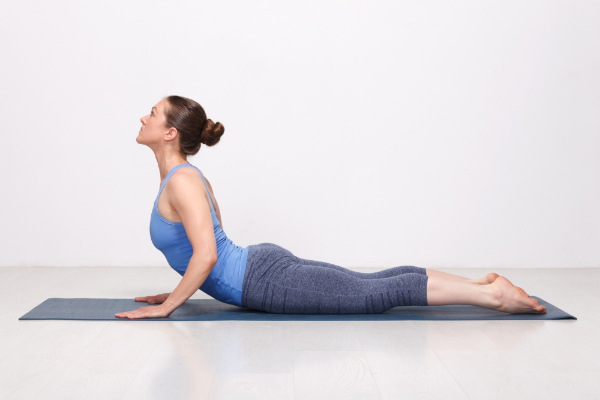
Cobra pose includes a less intense stretch to the front of the neck and offers gentle thyroid gland stimulation. If you're comfortable with it, you can also release your neck back further to create a more intense stretch at the front of the neck.
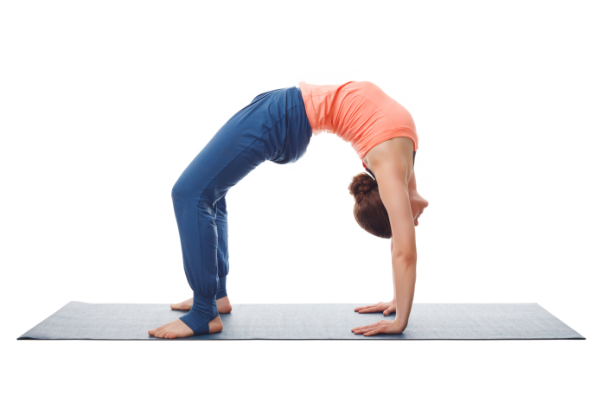
Wheel pose is a heart-opening backbend that gives you an energy boost and stimulates the thyroid with the neck extension.
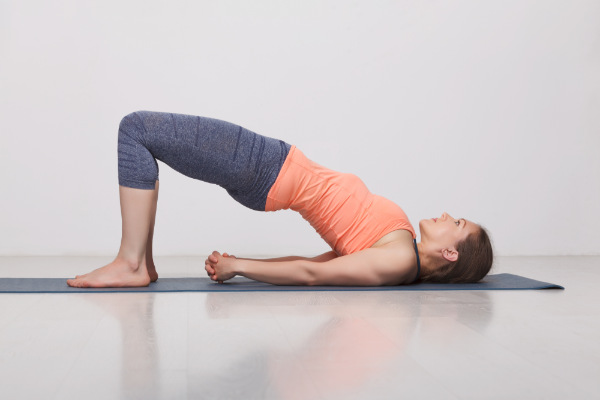
Bridge pose is another great pose in therapeutic yoga for thyroid function. It stretches the back of the neck, improving circulation. Plus, the chin lock position is believed to stimulate the thyroid. This pose is also useful for strength, reducing headaches, and treating asthma.
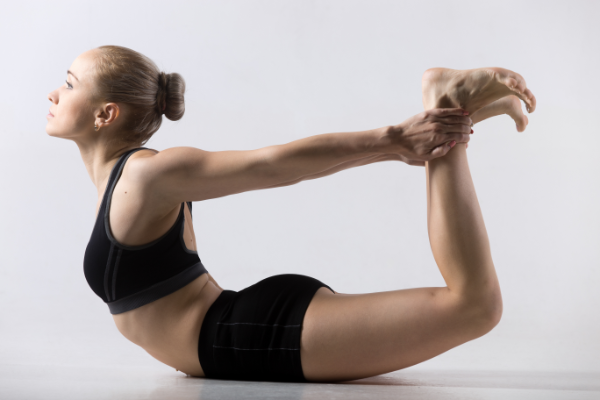
Bow pose helps reduce stress, relieve menstrual pain, strengthen your back muscles. The neck position also stimulates the thyroid.
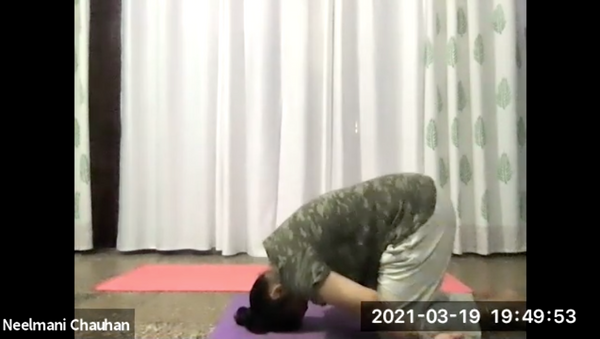
Rabbit pose is a slight inversion that offers a wonderful stretch of the upper spine and neck. It helps relax the nervous system and the chin lock of the pose benefits thyroid and parathyroid glands.
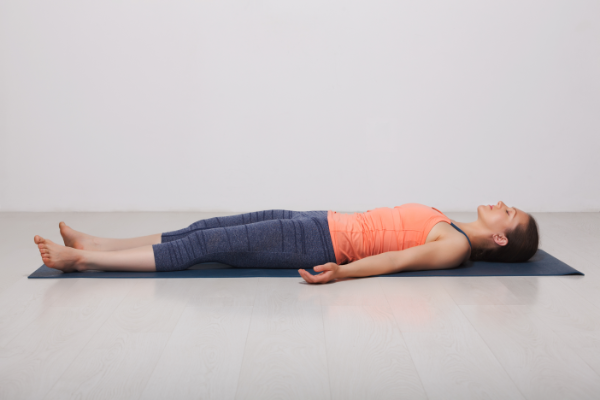
Savasana is a pose for complete relaxation and is a beautiful way to reduce stress. The position of your neck in this position is helpful to the thyroid gland, but the benefits of resting in this pose go well beyond that.
Ocean Breath, or Ujjayi pranayama, is a breathing technique that benefits those with hypothyroidism or hyperthyroidism. This breathing technique triggers the thyroid gland and is done by producing friction in the throat with your breath.
This pranayama messages your throat and can be practiced 10–11 times.
To practice Ujjayi pranayama, sit in any comfortable meditative posture and close your eyes. Keep your spine long and take a long, deep breath in through the nose. As you're inhaling, try to contract the throat and feel the air touching your throat.
Keep the breath light and relaxed. You'll notice that the sound produced by this breathing technique sounds like ocean waves breaking on the shore.
While the yoga poses we've included here are beneficial for hypothyroid disorders, if you have a severe thyroid problem like an enlarged goiter or lack of physical strength, you should avoid these poses and Ujjayi pranayama.
Those with hyperthyroid can do practice Ujjayi pranayama but should avoid any poses that stretch the neck or stimulate the thyroid.
Pregnant yogis should avoid poses that place their abdomens on the floor and should consult their doctor before attempting any yoga practice.
It's important to remember that yoga is not a substitute for treatments and medications recommended by your doctor. However, yoga has several well-documented benefits that can help reduce the occurrence of or minimize the effects of thyroid disorders.
Thyroid issues can arise for anyone at any age. They can be the result of genetics, an autoimmune disease, or even some other underlying health condition. Yoga is an excellent tool that can combat the symptoms of thyroid disease and when combined with treatments and medications from your doctor, can greatly improve the quality of life for those dealing with a thyroid disorder.
If you suffer from a thyroid disorder, please sign up for a free two-week trial of myYogaTeacher and take my live, online Therapeutic Yoga for Thyroid class. You'll also get access to 35+ live yoga classes each day.

Receive personalized guidance tailored to your unique fitness goals, live with a dedicated coach—no credit card required.